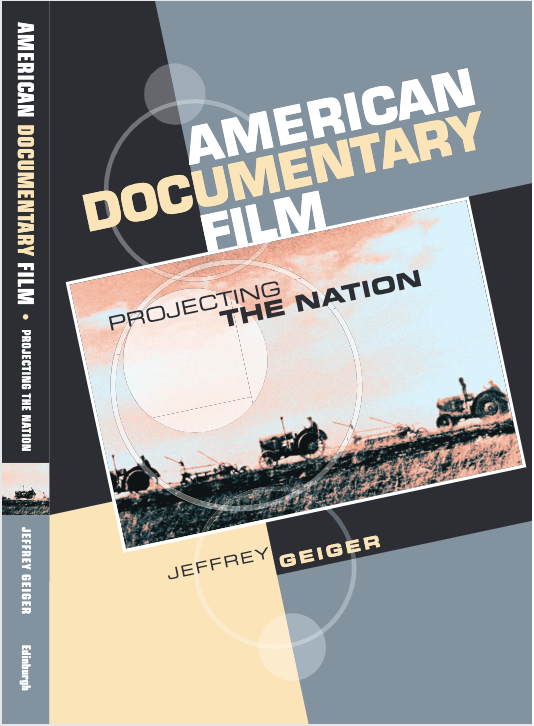AMERICAN DOCUMENTARY FILM: PROJECTING THE NATION
While the concept of a documentary itself has largely remained the same as it pertains to film art through the ages, the 2011 book American Documentary Film: Projecting the Nation by Jeffrey Geiger, and my third source choice in my research, posits that as technology, culture, and ultimately the greater society took a dramatic turn during the early 21st century, so too did the documentary film and the ways in which they were produced and perceived, as well as what could actually be defined as a “documentary.” Further, the uses and role of voice-over were both expanded and shifted beyond its usual conventions as the subject matter of the films themselves broadened.

“Even amid these commercialized, easily repeatable forms, more traditional documentary approaches are branching out to capture new audiences” (Geiger, 2011, p. 222). And indeed, as much as it is critiqued and often regarded as largely unsubstantial, reality TV is among the most successful and lucrative offshoots of direct cinema. Additionally, while “the customary addition of voice-over takes us back to documentary’s explanatory and interpretive functions,” its modern implementation has come to offer more humorous and sarcastic insights for strictly entertainment as opposed to the “earnest contextualization[s] and analyses of “cut-and-dry” observational documentary works. Lastly, Geiger adds that, amid these changes in the social conventions of documentaries, “serious” documentaries have
Now, why is the information presented in this source relevant to my project and subject matter, you might ask? It’s because I’d like to find a balance between maintaining the more “traditional” functions of documentary films as a genre while still having the appeal of a modern, socially-aware piece. The topic/subject matter of this piece furthers the need for this effort, as I seek to provide new perspectives on what it means to be a part of Gen Z and to show them in a different light. I believe this can be accomplished through the use of interviews and voice-overs which will act as the backbone of the project. While research and its presentation will still have an active role throughout the piece, it will take a backseat to the first-hand accounts that will make up the storyline and overall content as I will piece them together in a way that not only tells a story, but also in a way that addresses the questions that viewers/the audience may have about this demographic of people.
INTRODUCTION TO DOCUMENTARY

The next source I selected to explore is a 2017 informational text titled Introduction to Documentary (Third Edition) by Bill Nichols. I chose to focus on one particular chapter in this book that especially stood out to me, namely, What Makes Documentaries Engaging and Persuasive? In short, the answer to this question lies in the way that they are designed and presented. They cover the human experience and social practices that we can all relate to, and relate the information in a way that draws on the evidence while maintaining a unique voice that offers a different perspective on something. Because of this, “they become one voice among many in the arena of social debate and contestation” (Nichols, 2017, p. 88). Ultimately, it allows us and persuades us to see the world in a new light and in “ways that matter.”
What makes this so crucial in the process of conceptualizing and creating a documentary film is keeping the audience in mind throughout the entire process. Especially with a topic such as this, it’s imperative that the audience leaves with something more than they came with, whether a new perspective on the topic, inspiration, or even a view of disagreement or contestation—invoking that change is what matters. Through the personal experiences from myself that I share, as well as that of my interviewees, I want my audience to be able to observe and relate to those experiences in a way that may change their preconceptions about Gen Z, strengthen their already held viewpoints about it, or cause themselves to want to make a change or treat Gen Z’ers differently based on the first-hand accounts and struggles that were presented and made evident in this piece. For my next two sources, my research will change directions from documentary-specific research to understanding generational and intergenerational struggles through time, focusing on the time between millennials and Gen Z, and seeking to find out how the time in which we live has shaped our characteristics, beliefs, stigmas and the ways that we are regarded as opposed to previous generations. More specifically, I’d also like to look at how some members of the Gen Z community are seeking to change those stereotypes and create a different image when someone thinks of “Gen Z.”
CITATIONS
Geiger, J. (2011). American documentary film : projecting the nation. Edinburgh University Press.
Nichols, B. (2017). Introduction to documentary (Third). Indiana University Press.
